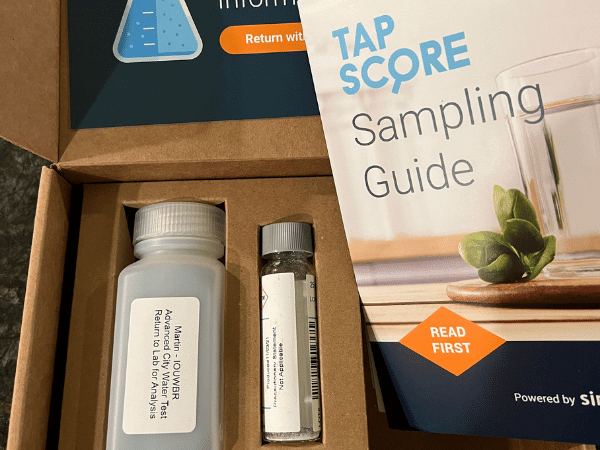If you’ve ever wondered whether your well water really needs filtering — you’re not alone. Many assume it’s clean because it comes straight from the ground. But the truth is, even the clearest water can hide contaminants that affect your health, plumbing, and peace of mind.
From natural minerals to invisible bacteria, private wells aren’t tested or treated like city water — so it’s up to you to make sure it’s safe.
Let’s take a look at when filtration is necessary and how to spot the signs.
✅ Key Takeaways
- 💡 Don’t guess — test. Knowing what’s in your water is the first step to choosing the right system.
- 🧪 Private wells should be tested annually for bacteria, nitrates, and other contaminants.
- 🚰 Common signs you may need a filter include cloudy water, bad taste, or staining.
- 🧱 Nearby geology, well depth, and local runoff can all impact water quality.
- 🧼 Filtration protects your health, your plumbing, and even your appliances.
- 🧰 Filters come in all shapes — from sediment traps to bacteria killers to iron removers.
🧪 Signs You Might Need a Filter

The simplest way to know if your water needs help? Get it tested. Local health departments or certified labs can check for bacteria, nitrates, metals — all the usual suspects.
But you don’t always need a lab report to know something’s off. Pay attention to clues like:
- 🌫️ Cloudy or discolored appearance
- 👃 Strange smells (sulfur, metallic, musty)
- 👅 Unpleasant taste
- 🪣 Sediment on fixtures or in the glass
- 🧼 Stains on sinks, tubs, or laundry
If anything seems weird, it’s worth checking out. Testing helps you choose the right well filtration system — not just any system.
🗣️ Ask the Previous Owner
If you bought the home, ask the last owner what they knew about the water. Any past issues? Did they filter it? It’s a small ask that could save you big headaches later.
And for extra peace of mind, check your property on public databases. The Environmental Working Group (EWG) has a helpful tool that flags known contamination zones by area.
👋 Chat with the Neighbors
If you’re not the only home on a private supply, talk to your neighbors. Ask if they’ve tested their water or use any kind of filtration. Chances are, what’s in their water is in yours too — and their insight might point you in the right direction.
💧 Water Testing Basics
Testing your water isn’t complicated — but accuracy matters. Skip the dip strips and go with a certified lab for reliable results. It’s the only way to know exactly what you’re dealing with.
💡 Unlike municipal tap water, private wells don’t get monitored by the city. Testing is entirely up to you — and it should be done at least once a year.
A good lab will check for dozens of potential troublemakers, including:
- 🦠 Coliform and E. coli
- 💣 Nitrates and nitrites
- 🔩 Heavy metals like lead, arsenic, mercury
- 🧪 Pesticides, herbicides, and VOCs
Once your results are in, you’ll get a report showing what’s present and at what levels. From there, you can figure out what kind of filtration (if any) you need.
🧪 We like Tap Score by SimpleLab — it screens for over 180 analytes and delivers a clear, jargon-free report with next steps. Or check out our favorite well water test kits here.
🪨 Soil, Rock & Well Depth
What’s in your water often comes down to what’s beneath your feet.
🧭 Local geology matters. If your soil is rich in iron, you might notice reddish stains on sinks or laundry. Live near granite? You could have trace levels of radon. Limestone-heavy areas often produce “hard” water that’s rich in calcium and magnesium.
📍 You can usually get this info from your local health department or state geological survey.
💧 Well depth plays a big role, too.
- Shallow wells (less than 50 feet) are more exposed to surface contamination like runoff, bacteria, or chemicals.
- Deeper wells offer more natural filtration but are more likely to contain dissolved minerals, which can lead to hardness and limescale buildup.
So, whether you’re noticing water that stains, smells off, or clogs fixtures — your geology and well depth might be behind it.
💡 Why Filter Well Water at All?

Even if your water looks clear and tastes fine, there can be more going on behind the scenes.
- 🧼 Health & Safety – A good filter removes bacteria, nitrates, lead, and other contaminants that may not show up until it’s too late.
- 👃 Better Taste & Smell – Filtration removes chlorine byproducts, sulfur odors, and the metallic taste that sometimes tags along with minerals.
- 🚰 Protects Your Plumbing – Sediment, iron, and scale can clog pipes, wear out appliances, and leave behind ugly stains.
- 💸 Cost Savings – Clean water means fewer bottled water runs, less detergent use, and fewer plumbing repairs down the line.
- 🏠 Whole-Home Peace of Mind – A whole house system treats water at the entry point — so every tap is safe, not just the kitchen sink.
Even if you’re not seeing signs of trouble, a water filter can quietly prevent a whole list of headaches.
🌀 Do You Need a Sediment Filter?
In most setups, yes — especially if you’re dealing with shallow wells or noticing bits of grit or discoloration in the water.
Sediment might seem harmless, but it can cause all kinds of trouble:
- Clogs pipes and fixtures
- Wears down appliances
- Makes water look cloudy or dirty
- Leaves rings and stains in tubs and sinks
A good sediment filter acts as your first line of defense, catching the big stuff before it messes with your plumbing — or worse, your health. Whether you’re dealing with sand, rust, or silt, this filter keeps everything downstream running smoother.
🧫 Do You Need a Bacteria Removal Filter?

If your water tests positive for harmful microbes, you absolutely need one.
Certain bacteria — like coliforms or E. coli — can sneak into your well through runoff, septic leaks, or just poor sealing. And while not all bacteria are dangerous, the ones that are can cause serious stomach trouble or worse.
Fortunately, disinfection options are solid:
- UV systems zap bacteria with ultraviolet light — no chemicals, no fuss
- Chlorine injection systems treat water before it enters your home, killing pathogens on contact
- Advanced filters can also help, but they’re usually used alongside a disinfection step, not in place of it
Bottom line? If a lab finds bacteria, don’t wait. A solid removal system keeps your water safe — and your stomach happy.
🧂 Should You Combine a Filter with a Softener?
If your water feels “off” and leaves crusty buildup behind — chances are you need both.
Water with high calcium and magnesium levels is considered “hard,” and while it’s not harmful to drink, it’s tough on your pipes, appliances, and even your hair. A softener helps with that. But if your water also contains contaminants like iron, sediment, or nitrates, a filter is what removes those.
Think of it like this:
- Softener = comfort (for your skin, hair, and plumbing)
- Filter = safety (for your health and drinking quality)
Combining both offers the best of both worlds — cleaner, softer water from every tap.
💡 Pro Tip: Always install the filter before the softener. This keeps dirt and debris from clogging up your softening system and extends its life.
🧲 Dealing with Iron in Your Water?

If your water has that rusty color or metallic taste, iron is likely the culprit. It’s a common issue in private wells — and it can stain sinks, clog pipes, and even leave your laundry looking less than fresh.
There are a few ways to tackle it:
- Oxidizing filters – These turn dissolved iron into solid particles, then trap them.
- Chemical injection – Uses chlorine or hydrogen peroxide to break down iron and other contaminants.
- Water softeners – Can remove small amounts of iron, but they’re not ideal for high levels.
The right solution depends on how much iron is in your water and whether it’s in dissolved or particulate form. If this is the case, have a look at some of the leading Iron filters on the market here.
💡 Pro Tip: If your iron levels are over 3 ppm, skip the softener-only route — you’ll need a dedicated iron filter to get the job done properly.
| Iron Level (ppm) | Recommended Treatment |
|---|---|
| 0.3 – 2 ppm | Salt-based water softener (if iron is dissolved) |
| 2 – 5 ppm | Dedicated iron filter (air injection or oxidizing filter) |
| 5 – 10+ ppm | Multi-stage treatment (oxidation + filtration) |
| Any level + slime or discoloration | May indicate iron bacteria – shock chlorination or disinfection required |
🔧 Pro Tip: If your water smells metallic or leaves orange-brown stains on fixtures, it’s likely iron — but a test will tell you how much and what type (dissolved, particulate, or bacterial).
 118 people found this helpful. Was this guide helpful to you?
118 people found this helpful. Was this guide helpful to you? 


